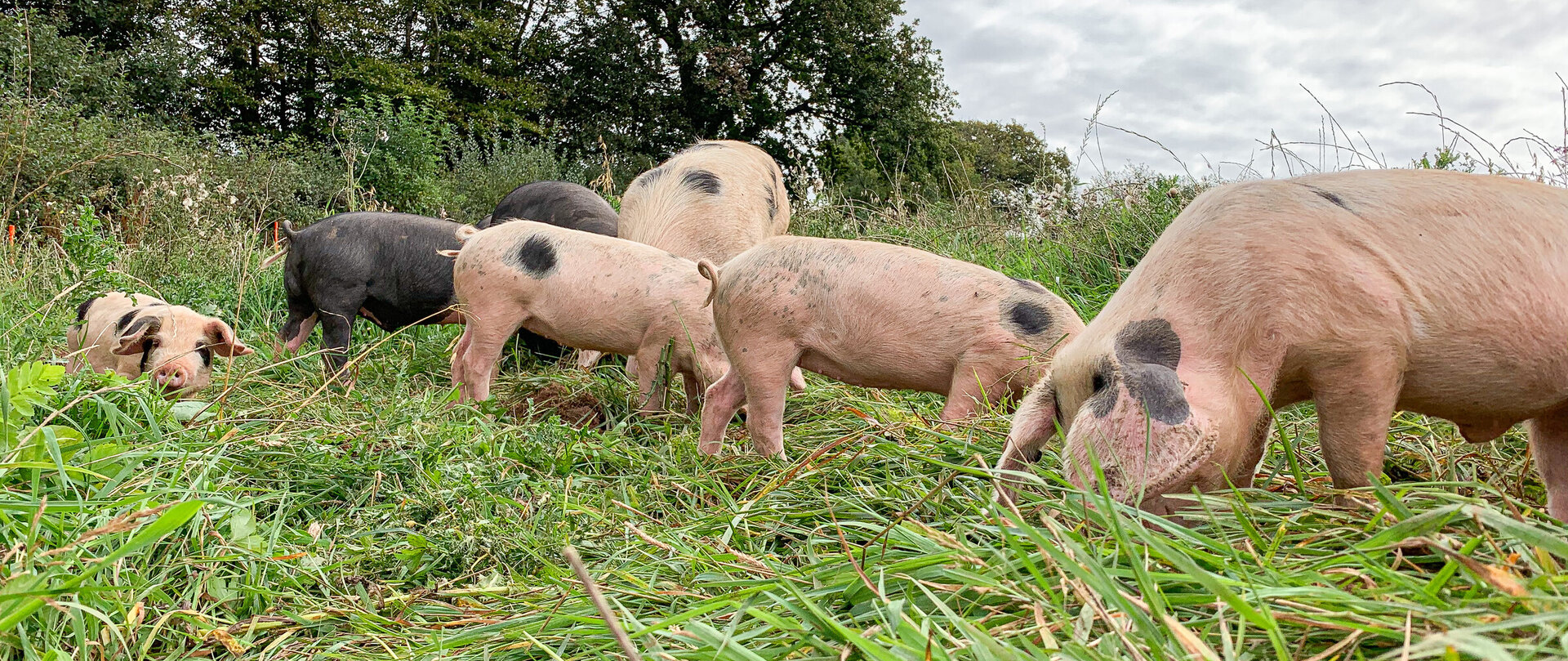OUR PIGS
Natural behaviour
Our traditional breed pigs are our cleverest farm animal and are very active creatures, always foraging for food. The majority of the year they are kept outside on pasture or in woodland and are moved regularly to provide them with fresh food.
This helps to keep their brain engaged and allows the pasture to regrow behind them. We also use our pigs to sow seed which they bury under a thin layer of soil using their snouts, reducing the need for machinery.
Adult pigs
Our adult pigs are kept outside year round, spending the summer rotating around small areas of land which are otherwise unused, along with clearing weed areas in cattle and sheep pasture. During winter they are moved around the more sheltered woodland.
Our sows give birth to and raise 2 litters of piglets outdoors each year who stay with their mothers for at least 8 weeks, giving them time to adjust from a milk-based diet to a forage based diet.
Raising piglets
Piglets that are weaned in the warmer, drier months are moved onto pasture or woodland. However, in the wetter part of the year the pigs dig more, creating large areas of bare soil which are vulnerable to erosion. Rain washes away vital nutrients and carbon escapes from the soil into the atmosphere.
To prevent this, we move many of our young pigs inside for the winter into spacious sheds, where they are used to create compost from cow dung. Digging through the manure keeps the pigs active and aerates the dung, encouraging microbes to break it down into compost. The compost is then spread on the fields where it increases soil organic matter, locking carbon into the soil and encouraging more plant growth.
Our pig breeds
We are currently moving from a system of Large White cross pigs to more traditional breeds. We now have Saddleback and Large Black pigs within our predominantly Gloucestershire Old Spot herd along with a few remaining Large White crosses. This genetic diversity helps us to find pigs who can grow well on a majority forage diet which can be dependent on individuals as much as breed.
Pigs require additional feed to forage as they are omnivores and their digestive system is not suited to extracting all the required nutrients from pasture alone. While they often find this in the form of slugs, insects and worms while feeding in the pasture, we also feed them grains to ensure they receive the nutrients they require. We are moving towards using UK grown grains and beans instead of relying on imported grain based meals. In autumn and winter the pigs are fed waste apples and potatoes, as well as foraging for acorns and other nuts in the woodland.
OUR PORK
Our pigs are slower growing on a natural diet, creating more size variation between individuals. We keep them until they are 6 to 12 months old.
This slow-grown life creates a better quality meat, allowing time for muscle development whilst naturally foraging. The natural diet, high in nutrients, provides the full flavour to our pork.
